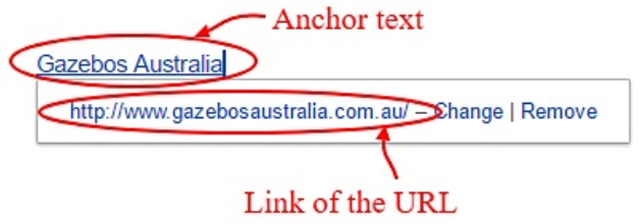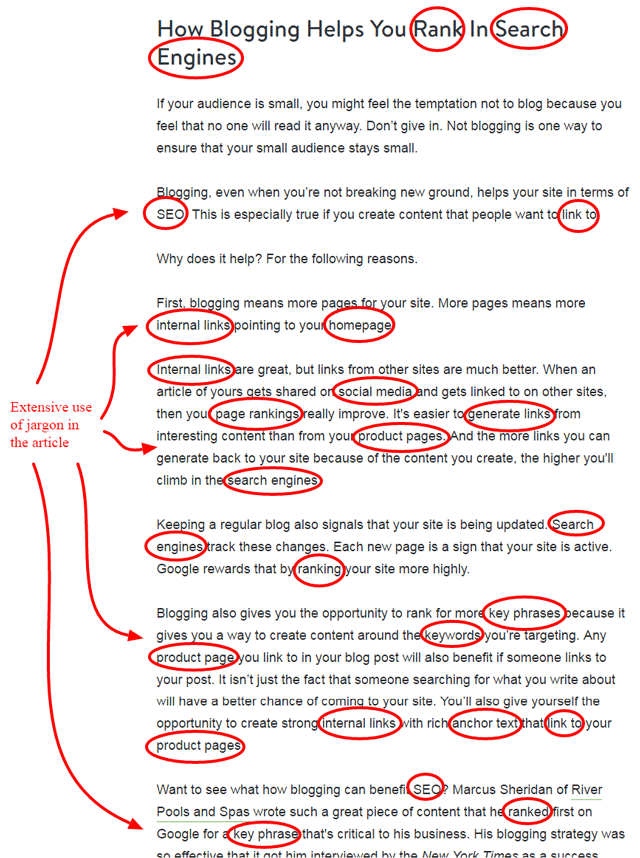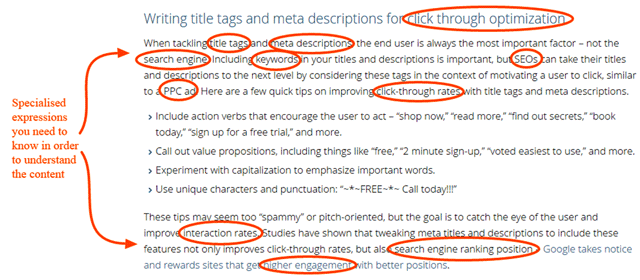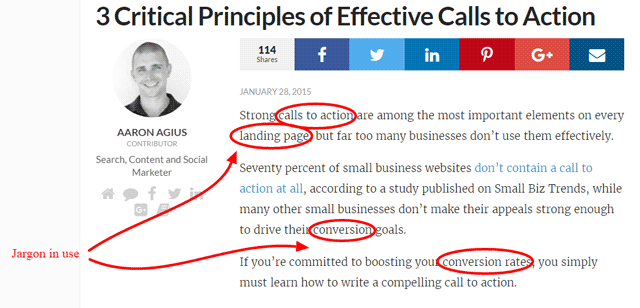
Each profession has their own unique set of expressions and definitions known as terminology, which enables faster, more precise and effective communication among professionals within a specialised domain. Your domain is or will be the eCommerce industry.
Therefore, even as a beginner, you need to learn this terminology to be able to communicate well with your coworkers, employers and other professionals and learn from them.
Thus, some people speak in favour of jargon, whereas some others speak against it because they perceive it as bringing about elitism and social exclusion. In other words – you can overdo it. If you do, you may sound pretentious to your peers.
However, in this lecture we’re going to show you how important eCommerce jargon is for you as an eCommerce employee to understand and why it’s necessary to know the lingo of your trade.
So, let’s get down to work.
Why You Should Know eCommerce Jargon New Lecture
Firstly, as we’ve already mentioned above, the use of specialised terms in different fields/professions plays an important part in accurate, precise, and concise communication.
Understanding Jargon Makes You More Productive
By using eCommerce jargon you are narrowing down the meaning of certain words in the given context or situation. In that way, you are avoiding disambiguation in everyday communication.
For example, if you say the word anchor in everyday communication, the majority of people will think about a ship or a boat anchor. Something like this:

In eCommerce copywriting, and copywriting in general, you have something called the anchor text. People in the industry usually shorten it and just say anchor. It is that underlined text on the hyperlink that you click on when you want to check the website.
When you look at the Gazebos Australia, hyperlink, the words Gazebos Australia are the anchor and the link is http://www.gazebosaustralia.com.au/ – the website you are taken to.

Therefore, if an eCommerce employer asks their eCommerce copywriter to fix the anchor they are not asking them to run to the shipyard and check the anchor on their yacht. They are asking them to fix that highlighted text of a hyperlink that you click on.
Learning industry-based jargon helps you narrow down the meaning of a word to the specific context which is essential for better communication.
This is important because bad communication means less productivity and more time wasted on fixing mistakes that are a consequence of misunderstandings. Just like every other business, eCommerce is all about efficiency and productivity.
Let’s back this point up with a couple of example scenarios.
Understanding Jargon Is a Characteristic of a Professional Person
Can you imagine doctors and nurses performing an emergency cardiac surgery to save a patient’s life without actually knowing the meanings of words/phrases/acronyms like these: dyspnea, ECG, IV push, specula, bradycardic, diastolic, endocarditis, asystole, aortic coarctation, cardiomyopathy, aneurysm, pericardial effusion and so on?
If each person in that operating theatre didn’t understand what these words meant, how could they talk to each other? How could they understand each other when discussing problems and working together to find the quickest and best possible way to save the patient?
Be honest: would you trust such doctors and consider them real professionals in their field?
Undoubtedly, no one would feel comfortable at all if their life depended on such medical stuff, right?
It’s only by having common language between them that they can relate to each other and understand each other precisely. Thus, each doctor/nurse/medical assistant MUST know what all these words mean.
Understanding Jargon Helps You Learn About eCommerce
Moreover, understanding specialised terminology is key to further professional development and educational training. This is essential for every eCommerce employee in this rapidly growing industry.
We can also take another, a bit less dramatic example of a mechanical engineer whose job is to design or construct pressure vessels.
Let’s just assume that the engineer wants to read this article to find out some details and news in the field. Take a glance at it.
Would it be possible to understand its content without having a clue what words like these mean: boiler, pressure vessel, ASME standards, nozzles, FEA, nozzle weld, shell, plate, special stress intensity evaluation/calculator, API, stiffness matrix, and the like? The article’s jam-packed with specialised terminology.
If a mechanical engineer wouldn’t understand this article, how could he learn anything? Not to mention constructing pressure vessels and discussing problems with co-workers!
Not only is being familiar with specialised terms important for everyday communication at one’s workplace, but it’s also crucial for one’s further education and professional development.
Alright, you’ve got the gist now!
The idea is that each profession has their own language to a certain extent. There are also nuances to that language because of cultural references i.e. cultural understandings behind particular professions.
And eCommerce is just another profession, so if you want to join in and become a real professional, you have to understand a particular type of language that is used in eCommerce industry.
Now, we’re going to demonstrate to you more specifically how this is related to a copywriter or any other individual who wants to get involved in eCommerce industry.
Learn the eCommerce Lingo
It’s widely known that eCommerce industry has been growing massively in recent times and that it’s very hard to find a true professional with eCommerce skills.
Isn’t that reason compelling enough for you to keep doing the courses in our eCommerce University and get involved in this industry?
Yes, but how can you even start learning about it if you don’t understand at least some basic terms in the field? No way!
Imagine an expert colleague trying to explain to you, let’s say, that there are different eCommerce shipping models such as dropshipping and warehousing and what the pros and cons of each of them are, while you have absolutely NO IDEA what the terms mean.
Common people might not know what that is, but you as a professional (to-be) have NO excuse! If you don’t know what this means, than working in eCommerce industry with other professionals becomes too confusing.
Furthermore, if you want to work as a copywriter or an online store admin and you’ve never heard of e.g. an ALT attribute, then you’re NO GOOD to an eCommerce employer. You’re just NOT professional enough and you do NOT have enough knowledge to be able to work in an eCommerce store.
Would you hire such a person if you ran your own online store? Probably not.
OK. you’re just a newbie and you really want to learn and become a professional, right?
Then, imagine you’re trying to learn why every eCommerce business needs a blog, so you’d perhaps find this article useful. If you manage to understand what it’s talking about…
Let’s check out a part of it and see how common specialised terms are.

All the circled terms are specialised copywriting terms. Even without reading the article, the extensive use of jargon can be noticed.
Although this article offers valuable content – it’s of NO use to you if you don’t understand the lingo. Got it? This directly influences your ability to learn more and become a better and more employable eCommerce copywriter.
Next, as a copywriter you should and probably would want to know how to create compelling content that ranks well in search engines because you want to be a successful, well-paid eCommerce copywriter. Just take a look at this article.
How can it possibly teach you anything if you don’t know what the following terms represent: search engines, SEO, Google algorithm, web page ranking, keyword research, link-building strategies, convert, or landing pages?
No matter it offers valuable content – it’s of NO use to you if you don’t understand the lingo. Got it?
Moreover, a good eCommerce employee would certainly want to stand on top of the latest trends in the industry with an article that teaches them 4 things to note when optimizing for local SEO in 2017. Let’s take a look at it.

Do you think you would be able to fully understand it if these words were ‘all Greek to you’? Go ahead, give it a try!
Then, let’s suppose you’d want to learn more about the importance of title tags and meta descriptions and their influence on the click-through rates of a website. Oh, sorry but you can’t if you’re not familiar with the terms used.

Or, for instance, you’d like to hone your copywriting skills and find out how to write effective Calls-to-action, so you find 3 Critical Principles of Effective Calls to Action and start reading it eagerly.

But then you realise you don’t know what e.g. ‘conversion rates’ or ‘landing page’ stand for. How disappointing might that be?
OK, OK, enough with the examples. You got the point!
So far you’ve certainly realised why and how important it is to learn the lingo of the trade if you want to engage in the industry and be able to fully understand what experts in the field are trying to teach you, haven’t you?
How can anyone consider you a professional if you’ve never heard of some very basic eCommerce terms like:
- Web Browsers
- Search Engines
- 301 Redirects
- 404 Error
- HTML
- URL
- ALT Text
- Meta Descriptions
- Keyword Research
- SEO
- Title Tag
- Bounce Rate
- Conversion Rate
- CTR
- CTA
- CMS
- Affiliate Marketing
- Inbound Marketing
- Referral Traffic
- Product Customisation
- Inventory
- SKU
- RPV
- A/B Multivariate Testing, and many more?
Remember a surgeon and a mechanical engineer from the beginning of our lesson? Would you find them professional if they didn’t know the lingo of their profession? Certainly not.
You see? So, if you truly, seriously want to pursue an online career in eCommerce, make sure you understand its terminology. Otherwise, it’s pointless.
In Summary
The use of specialised language also known as jargon in each field/profession condenses meaning and allows professionals to share information effectively. It also gives some mundane words specialised senses with certain professions.
There’s an old saying:
The beginning of wisdom is to call things by their proper name.
Confucius
So, what are you waiting for? Be wise. Go ahead, learn how to call things by their proper names in the eCommerce world. That’s crucial to your online career success.
Without common understanding among eCommerce professionals it is difficult to avoid talking at cross-purposes. It’s also rather challenging to learn about the industry and develop your professional skills.
Frequently Asked Questions
1. In order to understand this article: https://www.volusion.com/blog/how-search-engines-see-your-site-images/, you need to know at least the what these expressions mean:
a. SEO, SERPs, Alt attribute, conversion, optimise, title tag, crawl the website, search engine spiders
b. Baffle, tubesheet-floating,expansion joint, bundle, shell cover, hydrostatic pressure, ASME, gasket, flange
c. Curriculum, formative evaluation, neural forest, portfolio assessment, high-stakes testing, multiple intelligences theory.
2. Why is it important for eCommerce workers to learn terminology of the profession?
a. Only to show-off in front of other people.
b. To be able to communicate with the other professionals within the industry precisely and rapidly, as well as to understand professional literature which enables them to learn and develop rare eCommerce skills.
3. Why is it important for eCommerce employees to be precise in communication by using jargon properly?
a. To sound better and smarter
b. To increase productivity and minimise mistakes caused by misunderstanding
c. To improve their copywriting skills
4. How is learning eCommerce jargon improving your chances for advancement?
a. You are able to understand different lectures, articles and talks created by seasoned professionals and learn from them
b. They don’t. It’s just about understanding your employer
c. You will sound smarter, so you are more likely to get a promotion
